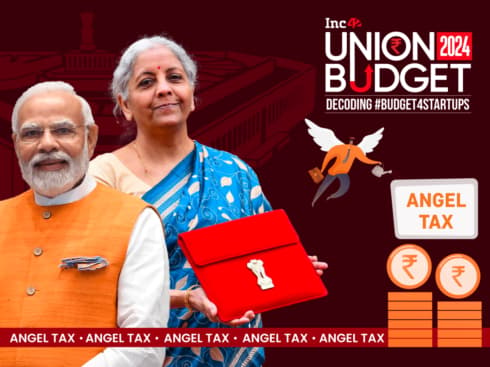
As the country pushes its sustainability agenda, the use of new technology deserves a closer look in order to make a difference in this cause
When we examine blockchain's role in environmental, social, and governance (ESG) policies and markets around the world, we can see how technology is already changing ESG markets.
If more Indian companies adopt blockchain as part of their sustainability practises and policies, we will be one step closer to realising the ambitious goals that the country and the world have set for themselves
As the world moves towards a greener future, it is imperative for businesses to build and lead with sustainable practices. India, one of the most populous countries in the world, has a tremendous stake in the global responsibility towards building a more sustainable world. The responsibility is especially magnified given the country’s reputation as a major economic powerhouse that ranks among the world’s largest energy-consuming countries.
In response to this gargantuan challenge, India has taken several initiatives to mitigate its high demand for coal, oil and biomass for its energy needs. From promoting the use of renewable energy to distributing energy-efficient LED lighting and banning the use of single-use plastic, these are some of the first steps that the government has taken to secure a greener future for India.
However, the road to sustainability is paved with thorns and remains extremely difficult. As the country pushes its sustainability agenda, the use of new technology deserves a closer look in order to make a difference in this cause. Blockchain is one of the best technologies for this. When we examine blockchain’s role in environmental, social, and governance (ESG) policies and markets around the world, we can see how technology is already changing ESG markets.
Improving Market Efficiencies
Corporate net zero commitments mean that global demand for voluntary carbon offsets is expected to rise from $1 Bn in 2021 to up to $50 Bn by 2030, despite markets being unable to reliably handle even today’s throughput. Offsets are frequently misused, misreported, and undervalued as a result of the current market structure. This is exacerbated by the fact that carbon credits are not interchangeable across markets.
Since the incorporation of blockchain into carbon markets, three operational improvements have occurred. Decentralisation, made possible by blockchain technology, has significantly reduced the complexity of registering, trading and managing carbon credits. The transparency provided by a shared ledger makes existing markets more reliable and open. This addresses market opacity, which has been a direct cause of ‘typical’ issues like lost quotas, illegal trading, fraud, and repeated transactions.
Safer Analytics For Social Policies
Data measurement issues frequently stymie social policy efforts, and data collection in particular can be hazardous to those it is intended to assist. Consider the Hope for Justice Charity, which collects data on human trafficking. Since the charity’s data collection is based on highly sensitive, individual cases, analysis has historically been impossible because any leaks in the original data could jeopardise the precarious position of those who provide it.
The solution? Use blockchain technology in conjunction with secure computing. This allows the charity to create aggregated analytics about human trafficking trends without exposing the underlying data. The use of blockchain in this space demonstrates that governments and socially responsible businesses have the potential to leverage their own data in unprecedented ways, with transformative results for global inequality.
Diversifying Good Governance
Governance is perhaps the most difficult to get right. Despite this, significant governance failures are a common source of corporate profit loss. Blockchain brings new methods to governance. Blockchain, for example, can bring more inclusive means of control and oversight by making voting more accessible to a broader range of stakeholders. Through the creation of governance tokens, Decentralised Finance (DeFi) in particular has popularised on-chain governance.
On-chain governance is a concept used in decentralised exchanges (DEXs) that govern liquidity pools. It refers to a built-in smart contract that provides stakeholders with governance tokens for their stakes so that they can vote for protocol changes directly on the blockchain. This allows all stakeholders to participate in governance, in contrast to off-chain governance processes (Bitcoin and Ethereum), in which proposals are centralised in the hands of core developers and influential stakeholders with decision powers.
Creating New Investable Asset Types
By creating new investable asset types, blockchain has also streamlined ESG programmes. Multinational corporations as diverse as Ikea, Keurig, and H&M have struggled to monetize positive environmental, social, and governance (ESG) characteristics in goods. Consumers like ‘green’ cosmetics and shoes made from plastic bottles, but a lack of standards encourages corporations to cut corners and occasionally exposes their exaggerated claims.
What if the asset could verify its own ESG claims? Well, this is already happening in finance and it has diversified tradable assets in three ways. The first is by bringing tradability to previously illiquid assets by verifying provenance claims. This means that it can support the issuance of green bonds or new instrument classes where ESG provenance is an essential characteristic.
The second benefit is that it exposes previously syndicated assets, such as infrastructure, to a wider market. This improves access to legacy asset types through improved liquidity discovery and tokenization. As the provenance of digital assets is easily traceable, this increases trust among all market participants.
A third example is the growing investor and consumer preference for sustainable fuels such as renewables and low-emission natural gas and hydrogen. Blockchain traceability and emissions accounting are helping to accelerate a fundamental global shift toward cleaner fuels and investable products.
The Sustainability Synergy In India
The opportunity is huge for India, and this is evident in the World Economic Forum report, which anticipates that India’s decarbonization journey is estimated to represent a $15 Tn economic opportunity by 2070, creating close to a staggering 50 Mn net new jobs.
At present, more than 57 Indian companies have committed to more than 95 emission reduction targets, and 400 Indian companies are already signatories to the UN Global Compact, a voluntary commitment by businesses to implement universal sustainability principles. There will surely be more companies that will be part of this growing movement in the near future.
Distributed ledger technology (DLT) and smart contracts have proved their mettle as instruments of change, shifting the very ground on which ESG claims are taking root. Truly transformative projects using blockchain are driving efficiencies within businesses and communities while simultaneously cutting emissions, reducing inequality and saving lives.
If more companies in India adopt blockchain technology as part of their sustainability practises and policies, we will be one step closer to realising the ambitious goals that the country and the world have set for themselves.































 Ad-lite browsing experience
Ad-lite browsing experience